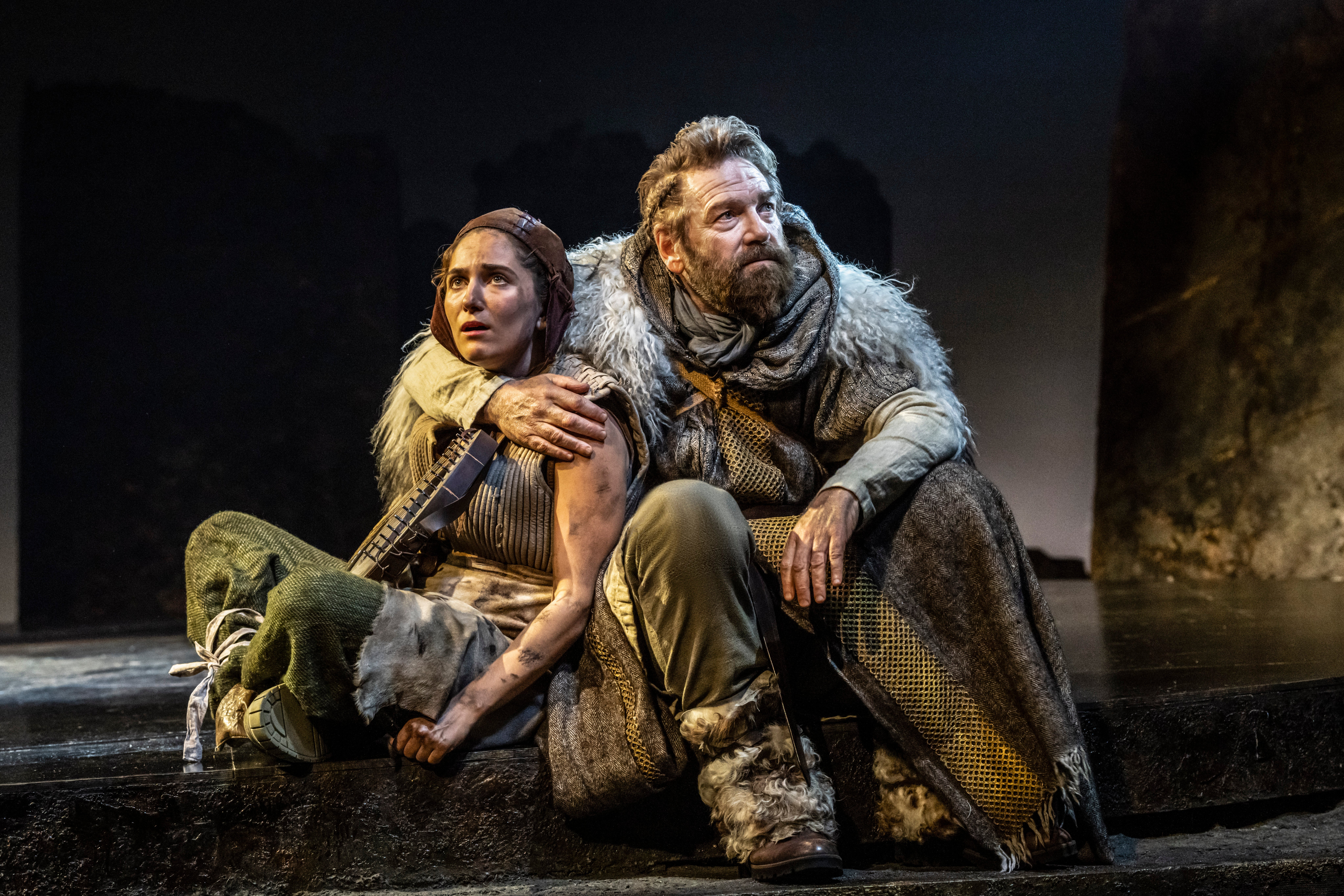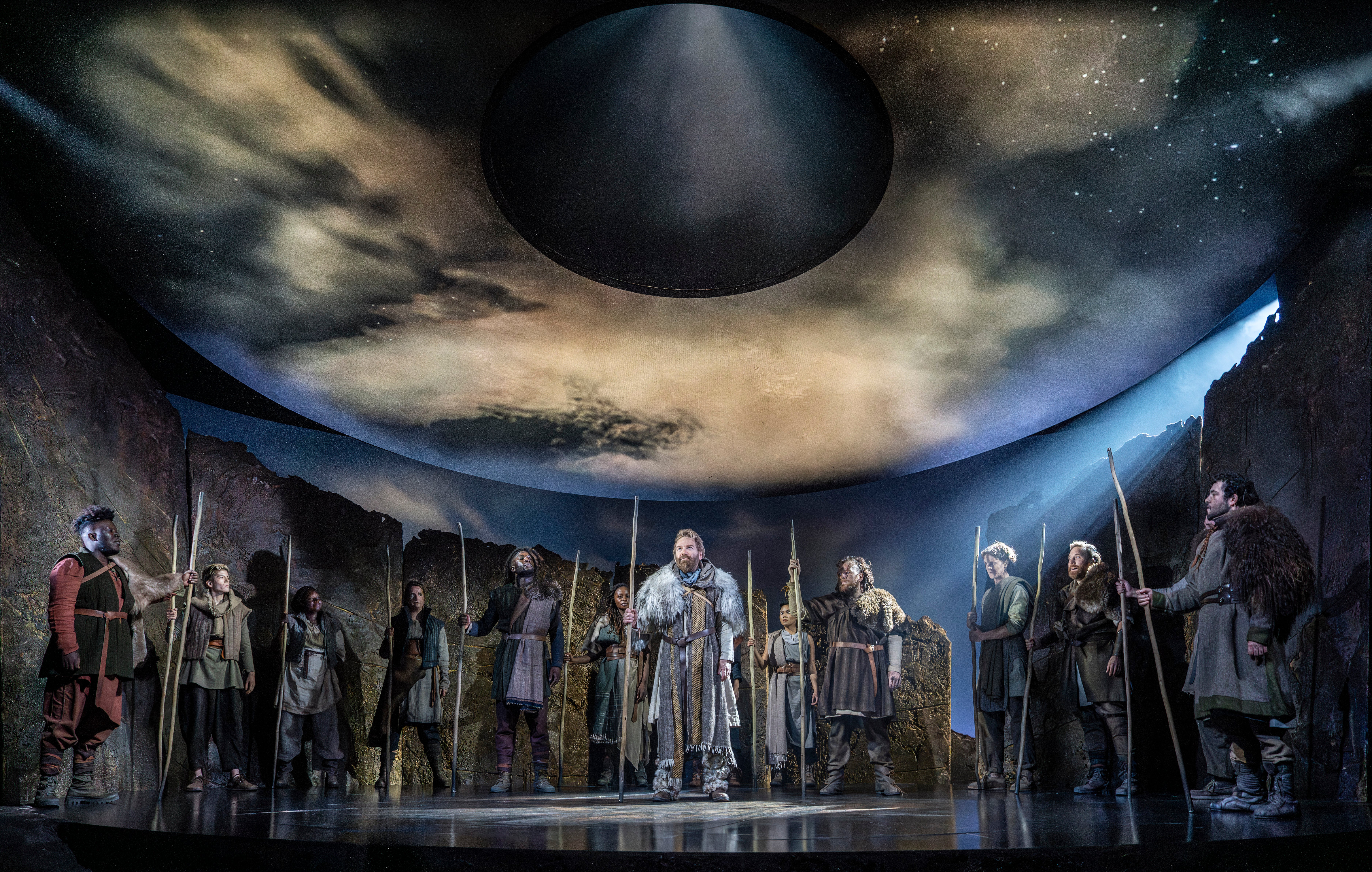King Lear review: Kenneth Branagh’s take on the thwarted ruler feels like a first draft
It’s the role that so many great Shakespearean actors hope to live up to, but Branagh’s West End performance of an ageing leader in decline feels like a curio rather than a complete reading

Generations of Shakespeare fans (and grumpy GCSE students) have grown up with Kenneth Branagh’s stylish, definitive film adaptations, including Henry V (1989), Othello (1995) and Hamlet (1996). So it’s unsurprising that there’s a cinematic, pared-down feel to his two-hour-long West End take on the role that so many great Shakespearean actors age into and hope to live up to: King Lear.
A giant, eye-like screen looms over designer Jon Bausor’s stage, moody with storm clouds and constellations of stars, establishing that we’re in an older, more primal era here. Lear and his kinsfolk are dressed like reenactments of bog bodies you might see in a museum, or a Game of Thrones tribe from beyond the wall – draped with furs and shawls, carrying large wooden staffs that they thump on the ground in ceremonial circles. If the setting feels ancient, Branagh’s Lear is substantially more youthful than most interpretations of this thwarted ageing king – Ian McKellen and Kathryn Hunter’s recent performances included.
He sparks with energy as a warrior king who expects ritualistic pledges of allegiance from his daughters: Goneril (Deborah Alli) and Regan (Melanie-Joyce Bermudez) play their part in the rite, but Cordelia (Jessica Revell) shatters the spell with her honest protestations of discomfort. Steps at the front of the stage heighten the sense he could come roaring off the stage at any minute as he bellows his fury, bears his chest, or grips Edmund (Corey Mylchreest) in a chokehold and throws him to the ground.

The famous storm scene – where Lear wanders across heathland, lashed by the elements – is one of transformation, here. At first, Branagh is able to out-bellow the roaring wind, then he suddenly shrinks in on himself, stripped of his physical as well as worldly powers, his limbs becoming limp and trembling, his body broken and feeble. It’s a reading of this central role that’s unlike any other. But it’s also one that’s increasingly hard to make sense of. Here, Revell plays the role of both Cordelia and the Fool, the latter of whom accompanies Lear through the storm – but the thought behind this doubling is unclear, and there’s none of the expected intensity in this central pairing.
There’s also a more general sense that none of the rest of the cast are matching Branagh’s energy here. The rest of the cast are recent Rada graduates, with immaculate diction but a certain straightforwardness of approach to their roles. Branagh’s given them a real platform in this West End production, without necessarily directing them in a way that explains their presence – unless, perhaps their youth is a reflection of a violent, brutal society where few live past 30.
This King Lear feels like a curio, one that starts to imagine a different kind of way of presenting this time-honoured story of ageing and decline, without quite offering a complete reading. It feels like a first draft, polished to spearhead visual brightness, but not sharpened to a point. For that, we’ll have to wait for Branagh’s near-inevitable, and welcome, film adaptation.
‘King Lear’ is at Wyndham’s Theatre until 9 December
Join our commenting forum
Join thought-provoking conversations, follow other Independent readers and see their replies
Comments
Bookmark popover
Removed from bookmarks